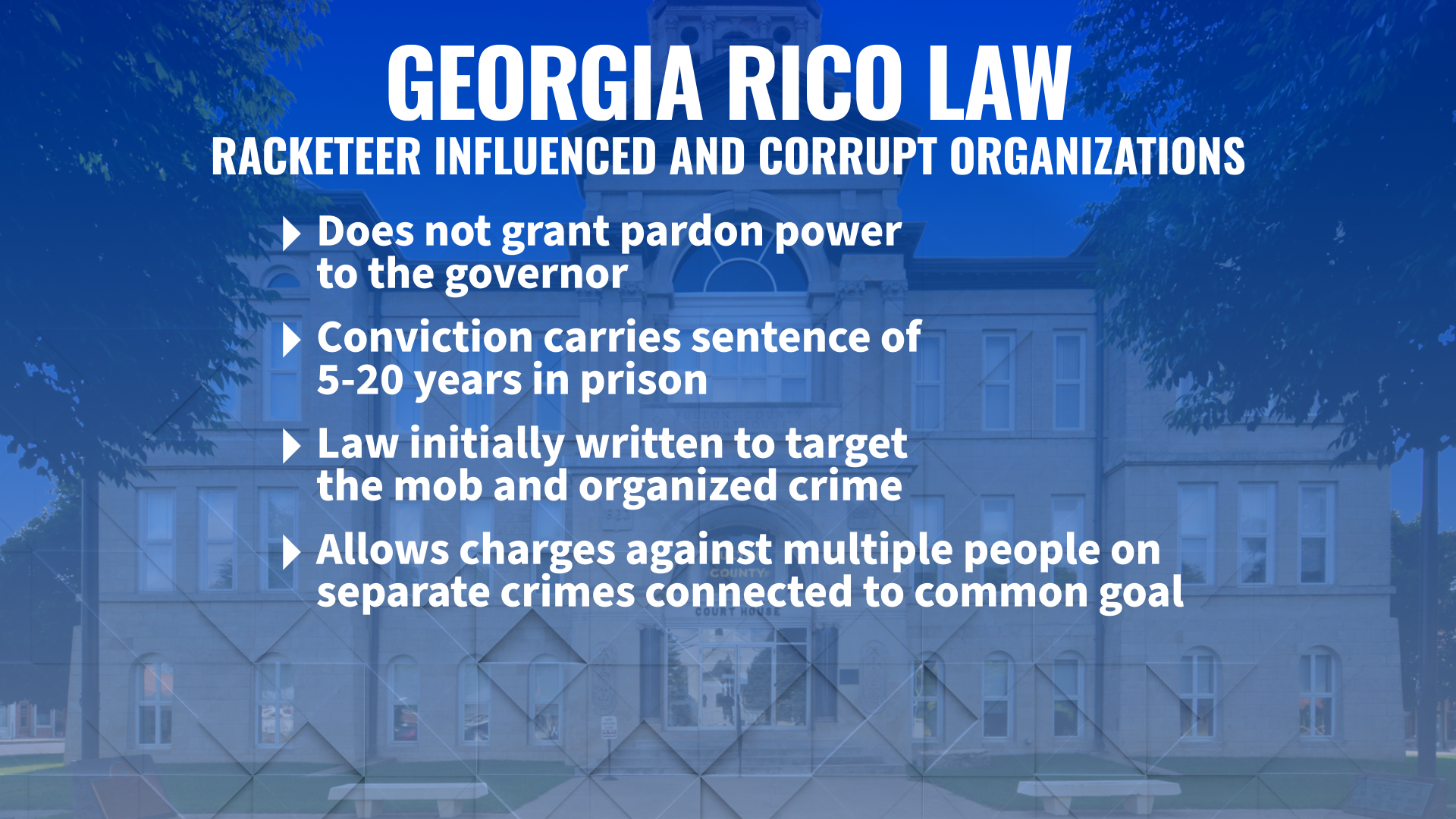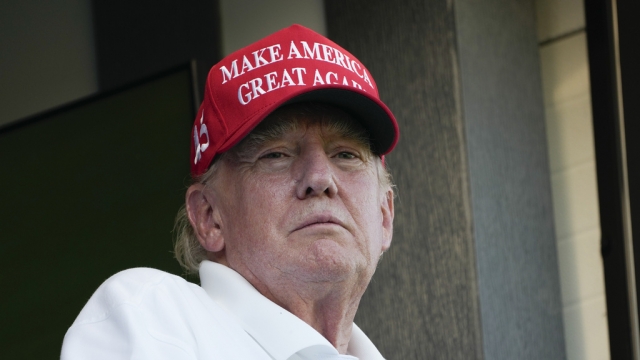Fulton County District Attorney Fani Willis has been investigating Donald Trump's efforts to overturn Georgia's 2020 election results for more than two years. Legal experts expected Willis to bring the case under a law initially written to target the mob: The Racketeer Influenced and Corrupt Organizations Act, or RICO.
"A racketeer is somebody who commits at least two different crimes, and that are related in trying to achieve the same goal," said Clark Cunningham, a W. Lee Burge chair of law and ethics at Georgia State University in Atlanta.
Georgia's RICO law is written more broadly than the federal version, which means there is a large number of crimes that can qualify for a racketeering charge.
SEE MORE: A possible 4th Trump indictment. How did we get here?
Cunningham said of the crimes, "The ones that we think will appear in the indictment: It's a crime to make a false statement to a state official; it's a crime to create false documents and submit them to various State agencies. Perjury can be a crime; terroristic threats ... and we know that district attorney is looking at threats against election workers."
The former president is already facing two federal indictments and a case in New York. But if he's indicted in Fulton County, in Georgia, it could be the most problematic case he faces.
"If he's reelected, he has no power over what's going on in Georgia," Cunningham said.
"He can't tell the district attorney what to do. She is an elected official. She's not answerable to anybody in state government. So, the possibility of him being convicted and going to jail is far greater I would say," Cunningham said.

Criminal defense attorney and Former Fulton County prosecutor, Manny Arora, said, "RICO in Georgia is really easy to prove."
Arora told Atlanta's WSB, "As long as it’s a crime that forwards the goal of the conspiracy, being in this case, the election fraud, misrepresentation, you can do it."
In Georgia, the law has been used to target organized crime, but has also been applied to government officials.
The Georgia General Assembly adopted RICO in 1980, modeled after the similar law on the federal level, after concerns over the "increasing sophistication of various criminal elements," the Atlanta Journal Constitution reported.
On the federal level, according to the U.S. Department of Justice, "The power of RICO lies in its conspiracy provision, based on an enterprise rationale, that allows tying together apparently unrelated crimes with a common objective into a prosecutable pattern of racketeering."
There are also more severe penalties for violations of the RICO Act. The DOJ says that the power of RICO to deter these crimes is in an effort to, "produce a more viable, democratically elected union leadership."
Trending stories at Scrippsnews.com




